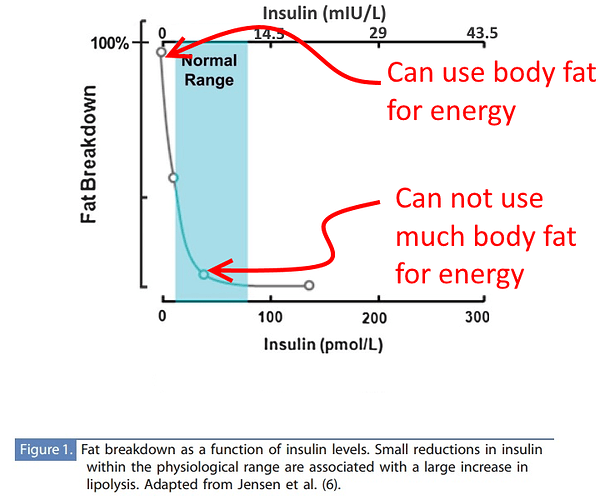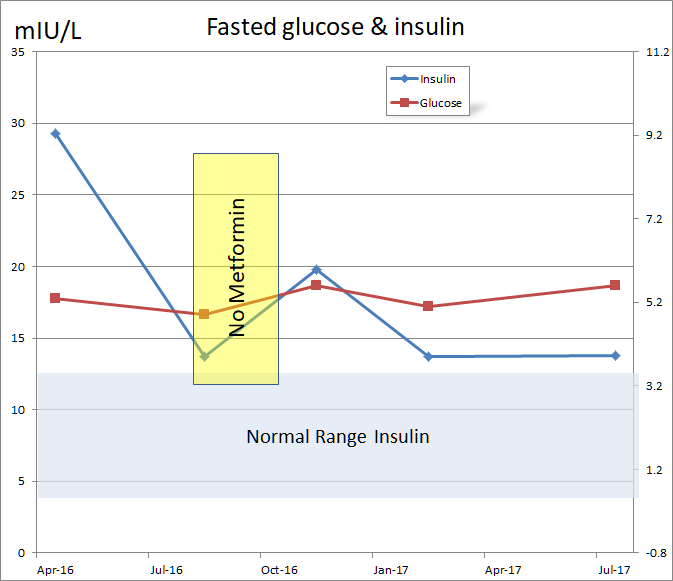Hello all, hope all is well. I have been on a plateau for 3 months, and while there are those who have been so for longer than I, it seems like an eternity to me. I had my hunch why proven today, when I received my latest labs (markers improving, but slowly). I had talked my endo into ordering a fasting insulin test to see the extent of my problem, it came back with a value of 21. So, that was a sound slap in the face and gave me the answer (at least I think) why progress is at a standstill. Is this a reasonable guess, @richard? With baseline insulin that high, my bodyfat is not going anywhere. ANYWHERE.
So, my frustration is high, I am very discouraged. I will not give up, but right now I am so bummed out. Even strict keto only gets you so far, and it didn’t get me far at all. The obvious and only path ahead is with extended fasting broken up by periods of intermittent fasting. I will keep on, but it’s so hard on my self esteem. So please bear with me, I may need a bit of support from time to time. If that doesn’t work I will have to accept being in a permanent 70 lb fat suit. End whine.




